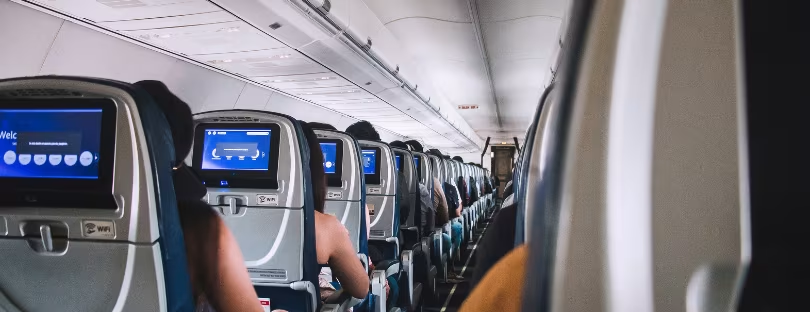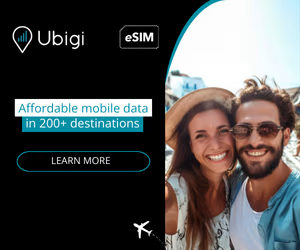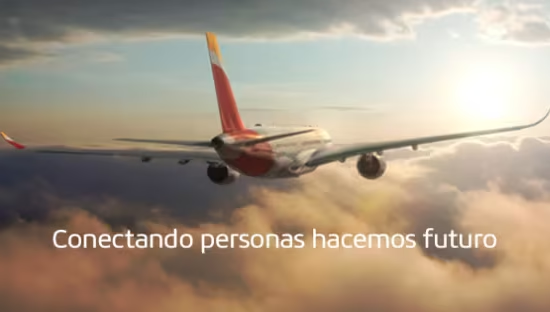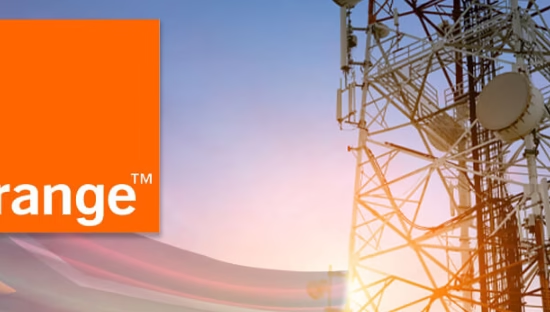
Would You Buy a Travel eSIM from an Airline or Hotel? We Ran a Poll
Airlines and hotels have always looked for new ways to add value — and revenue—around the travel experience. From seat upgrades to baggage insurance to Wi-Fi passes, travelers are used to being offered extras at almost every stage of their journey. But what happens when that add-on isn’t a coffee voucher or an extra night’s stay but something more essential: your mobile connection abroad? Airlines aren’t just testing the waters with eSIM ‘s—providers like Ubigi, Jetpac, Roamless, aloSIM, esim.io and Viajar eSIM, to name a few, are already appearing in booking flows and even inflight services. With these partnerships becoming more common, our recent poll asking whether travelers would actually trust an airline or hotel to sell them a travel eSIM feels especially timely.
That’s the question behind our recent poll, where we asked 623 travelers: “Would you trust an airline or hotel to sell you a travel eSIM?” The responses paint a clear picture of where people stand on convenience, pricing, and control when it comes to staying connected.
Here’s how the votes landed:
- 42.86% said “Maybe — depends on pricing”
- 28.57% said “Yes — it’s convenient”
- 28.57% said “No — I prefer to choose myself”
- 0% said “I already use one provider”
At first glance, it looks like a simple split of opinions. But dig a little deeper and this poll sheds light on a bigger question: who will travelers actually trust to handle their mobile connectivity?
Why Travelers Care About Who Sells Them an eSIM
eSIMs are becoming mainstream. GSMA reports that by 2025, over 2 billion devices will support eSIMs. For frequent travelers, it’s already the easiest way to avoid roaming fees. You land, scan a QR code, and you’re online.
That convenience makes eSIMs a natural candidate for distribution through airlines and hotels. After all, these industries already sell plenty of add-ons: seat upgrades, travel insurance, tours, and Wi-Fi passes. Why not connectivity?
The difference is that connectivity isn’t optional. If your airport transfer is delayed or your baggage insurance claim takes a few days, you’ll survive. If your data connection fails the moment you land, you’re stuck. That’s why trust matters.
The “Maybe, Depends on Pricing” Majority
The biggest share of voters (42.86%) said they might buy an eSIM from an airline or hotel, but only if the price was fair.
That’s a telling result. It suggests people are open to the idea, but don’t fully trust airlines or hotels to price it reasonably. And that’s not surprising. Airlines especially have a reputation for hidden fees and charging extra for things that used to be included.
This is the key challenge: price sensitivity in the eSIM market is very real. When comparing eSIM providers like Airalo, VOIA, or Airhub, even a €5 difference in a 5 GB plan can sway someone’s decision.
Research from GSMA Intelligence in 2024 highlighted that while awareness of eSIMs is growing, confusing and inconsistent pricing models remain one of the biggest adoption barriers. Travelers know they can shop around, and many will.
So while airlines and hotels could absolutely distribute eSIMs, they’ll need to make sure their pricing doesn’t feel like another travel surcharge.
The “Yes, It’s Convenient” Group
Nearly 29% said they’d buy an eSIM from an airline or hotel because it’s convenient.
Convenience often wins in travel. People buy in-flight Wi-Fi even when it’s expensive, grab SIM cards at airport kiosks, and order overpriced transfers — all because they want things sorted quickly.
Airlines in particular have an edge here. They know your travel dates and destinations, which means they can offer targeted connectivity. Picture this:
Two days before departure, your airline app sends you:
“Heading to Japan? Add 5GB of data for €14.99. Activate when you land.”
That’s a powerful offer because it arrives at the right time with minimal effort required.
Hotels could do something similar, bundling eSIMs with check-in or as part of a “digital welcome pack.” But they lack the same travel data airlines have, so their offers might feel less tailored.
For this group of travelers, convenience outweighs concerns about choice or price.
The “No, I’ll Choose Myself” Crowd
The same percentage (28.57%) said no — they’d rather choose their own provider.
This reflects a growing trend of DIY digital travelers. These are the people who compare flights across multiple OTAs, check endless reviews before booking hotels, and browse Reddit threads about the best eSIM providers for Thailand or Turkey.
For them, airlines and hotels don’t feel like the best place to shop for mobile connectivity. They want the freedom to compare. Independent providers like BNESIM, Airhub, Holafly, or Airalo appeal more because they aggregate multiple network partners, giving broader coverage options and sometimes better prices.
This segment probably won’t be swayed by convenience. They’ve already built their own routines for buying connectivity — and they enjoy the control.
The 0% Surprise
One surprising outcome was that 0% said they stick with a single provider.
In the traditional SIM world, brand loyalty is common. People stay with AT&T, Vodafone, or Orange for years. But in the eSIM travel space, loyalty doesn’t exist yet. Travelers shop around plan by plan.
This is both an opportunity and a challenge. No provider has “won” the trust of international travelers—leaving the door open for new players, including airlines and hotels. But it also means these industries will be competing against agile startups that live and breathe connectivity.
Comparing Airlines and Hotels with Other New Players
Airlines and hotels aren’t the only ones eyeing the eSIM opportunity. Other industries are already moving fast:
- Fintech apps (Revolut, Wise, Crypto.com): They’ve started adding eSIMs into their apps, bundling them with financial services. The trust comes from already handling payments.
- Tech giants (Apple, Samsung, Google): Device makers are embedding eSIM stores directly into phones. The advantage here is seamless integration. No QR codes, just a tap.
- OTAs (Booking.com, Trip.com): A few are testing eSIM add-ons at checkout. Their edge is scale — millions of travelers already complete their bookings through them.
Against these players, airlines and hotels may seem late. But their edge is timing and context: they can sell eSIMs at the exact moment travelers are most likely to need them.
Where the Market Is Headed
Industry forecasts suggest that distribution will be the big growth driver. Kaleido Intelligence predicts travel eSIM revenue will top $10 billion by 2028, largely thanks to partnerships and bundled sales rather than direct telecom channels.
That means the battleground won’t be technology — it’ll be trust and positioning. Whoever manages to convince travelers that their eSIMs are reliable, fairly priced, and easy to activate will win.
We’ll likely see:
- Airlines offering eSIM bundles alongside tickets.
- Hotels including eSIMs in loyalty packages.
- Airports selling them in duty-free.
- Super apps bundle them with payments, transport, and insurance.
The common thread? Travelers will increasingly expect connectivity to be just another part of the booking flow.
New poll:
Conclusion: Airlines and Hotels Have a Shot — If They Play It Right
This poll shows that travelers aren’t dismissing the idea of airlines and hotels selling eSIMs outright. In fact, the majority are at least open to it. But pricing and trust will decide whether it works.
Specialist providers like Airalo, Nomad, and Airhub already have a head start in trust and choice. Fintechs and tech giants bring integration and brand credibility. Airlines and hotels will need to overcome their reputation for add-on markups if they want to be taken seriously.
The winning formula will be:
- Transparent, competitive pricing.
- Reliable partnerships with strong network providers.
- Personalized offers that arrive at the right time.
- Clear communication that this is about helping travelers, not squeezing them.
If airlines and hotels get that balance right, they could become serious players in travel connectivity. If not, travelers will keep shopping around with the specialists.
Either way, the days of lining up at airport kiosks for plastic SIM cards are numbered. The real question now is: who will travelers ultimately trust to keep them connected?











